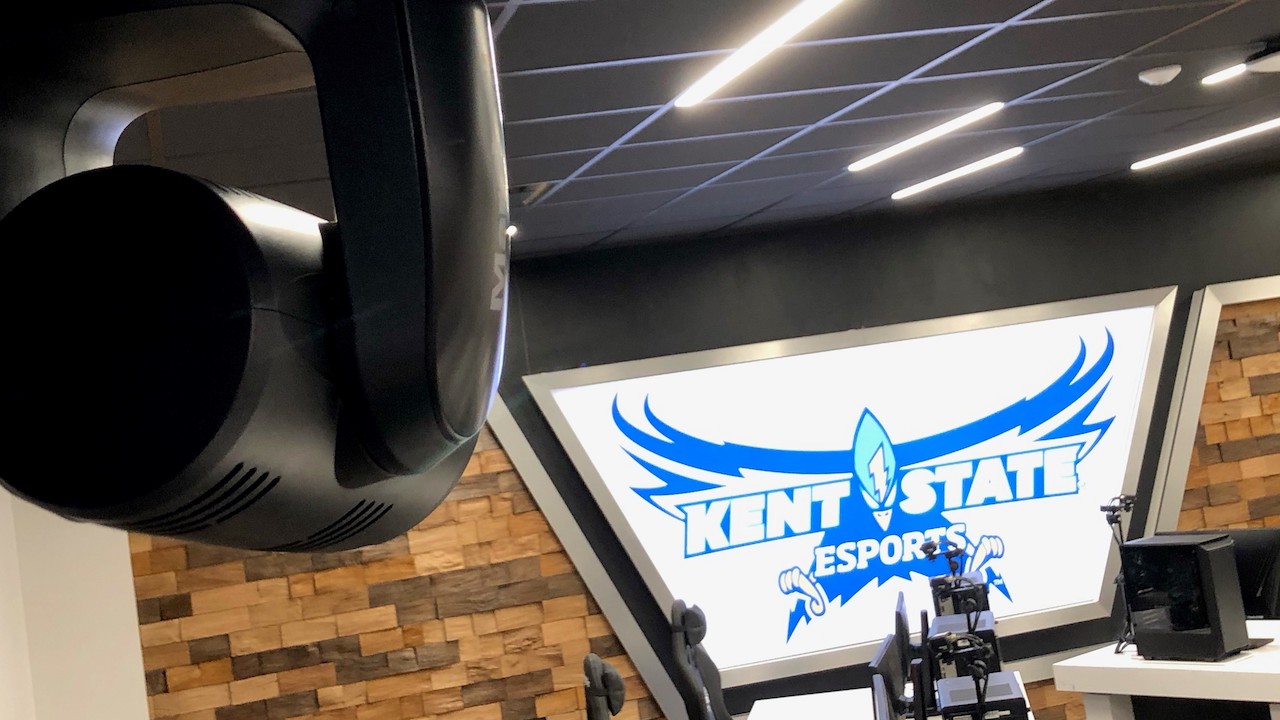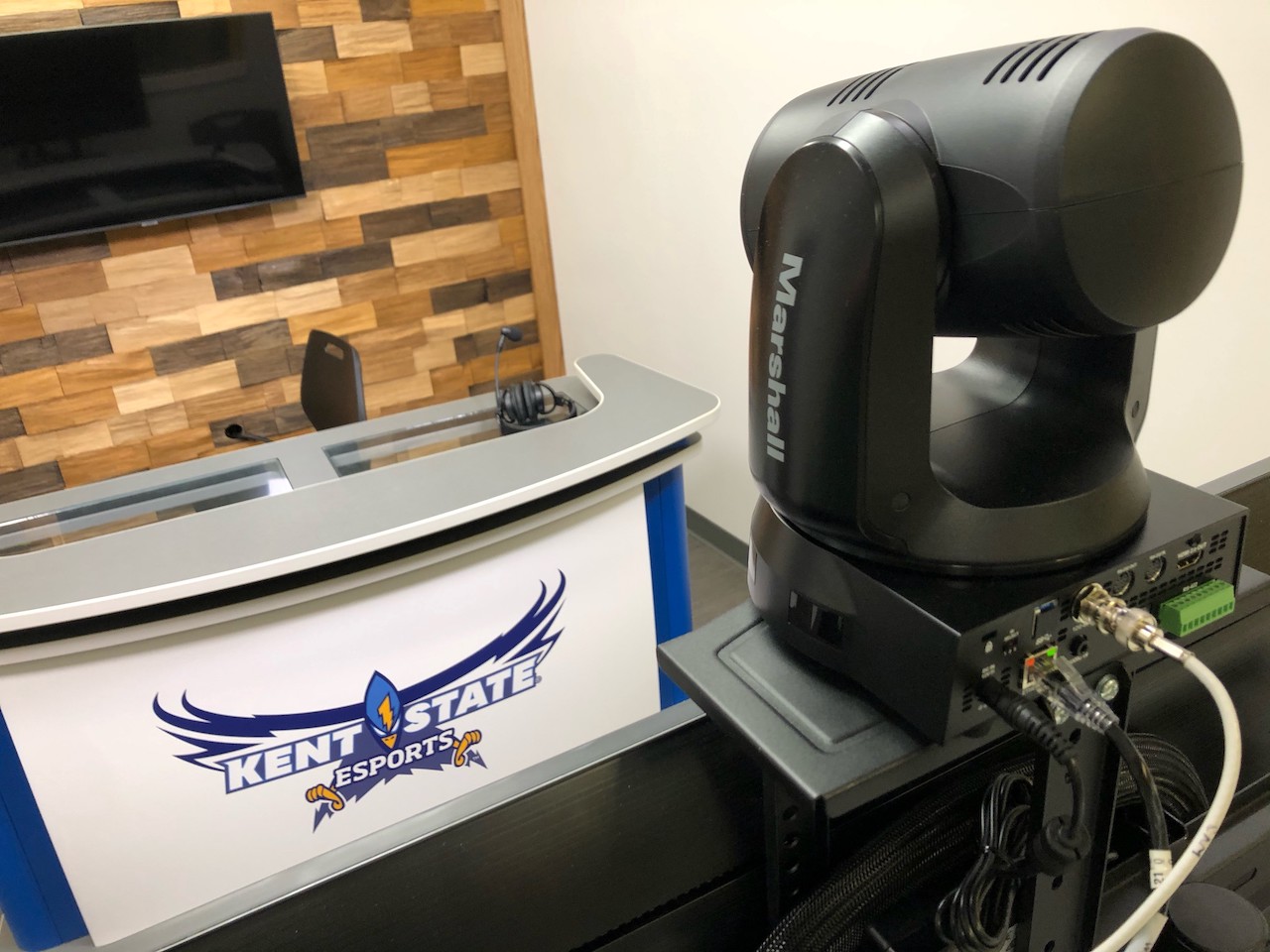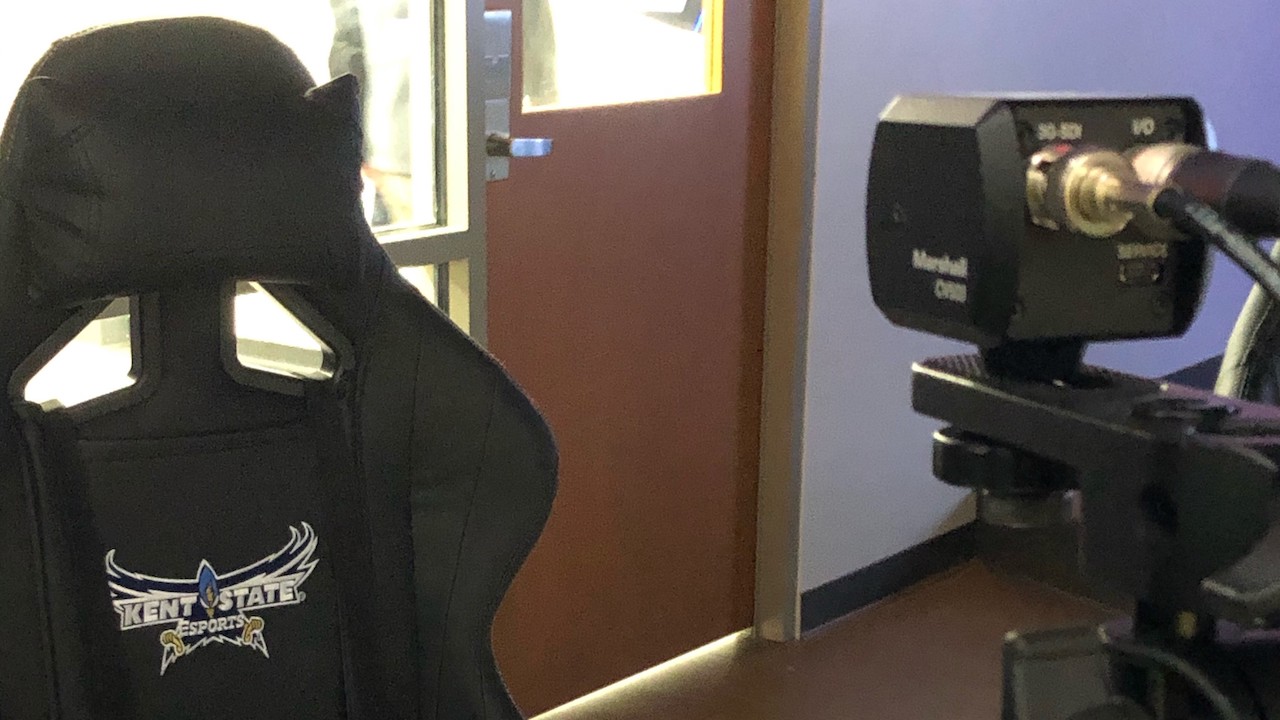Marshall Cameras Enhance Kent State’s Esports Live Streams

Kent State University originally launched its esports program in the Fall of 1998 and it was the beginning of something big. Today, with a community of over 400 students and growing daily, the University currently competes at a varsity level in the Overwatch, League of Legends, Rocket League, and Hearthstone competitions. Looking to enhance live streams by capturing athlete reactions and interactions with other players and team members, Jason Forbes, broadcast engineer at Kent State University Teleproductions turned to the miniature CV503 POV and full featured CV730 PTZ cameras from Marshall Electronics.
[The Technology Manager's Guide to Esports]
The university was already very familiar with Marshall, as its cameras are used throughout the campus for some of its traditional sports and as observation cameras for classrooms and labs. The design and integration of Kent State’s 12-seat V-style arena gaming space was done entirely in-house with an assist from Heartland Video, which provided most of the video production gear. The use of Marshall’s ultra-compact cameras allowed the team to enhance its live streams to Twitch without causing any player distractions or interference.
“To capture athlete reactions, we placed one CV503 POV camera at each of the 12 player stations as gamer cams,” Forbes said. “We also installed two CV730 PTZ cameras in the arena space to shoot wider shots of the players, and then an additional CV730 in the casters studio. The control room houses the observer computers as well as the Marshall controllers.”

The Marshall CV503 offers 1920x1080p video at up to 60 fps in a durable form factor, and straightforward design. Marshall’s CV730 features a 30x optical zoom block and flexible 12G-SDI, HDMI, IP simultaneous outputs with UHD images up to 3840 x 2160p at 60 fps. Remote adjust and match settings include iris, zoom, pan/tilt, white balance, exposure, pedestal, and more, over long distances to the control booth or during setup with auto settings that track environmental fluctuations.
Marshall’s VS-PTC-IP controller is used to maneuver the CV730 PTZ cameras into position and between presets as well as paint and fine tune as needed. The CV-RCP-V2 Touchscreen CCU is used to shade, adjust, and match the CV503 POVs remotely from the control room.
[The Technology Manager's Guide to Streaming]
A daily selection of features, industry news, and analysis for AV/IT professionals. Sign up below.
“The ease of use of the Marshall cameras is amazing,” Forbes said. “The menus are self-explanatory, which is very important as our productions are primarily student-run. In addition, having PoE has made our life so much easier, as I did not have to bring an electrician in to get the cameras powered up. The other important piece of the puzzle is the price point. Operating on a university budget, Marshall’s price is spot on. The cameras have proven themselves to be reliable. After the initial setup, our players don’t even know they are there.”

Kent State’s esports program has a focus on student welfare. Students on the varsity team must be enrolled full-time and maintain a minimum 2.5 grade point average. They also have mandatory tutoring and advising to ensure they are progressing toward a degree. The Kent State esports program collaborates with the university’s Student Wellness and Recreation Center to determine an exercise plan, a nutritionist, and a sports psychologist to work on the physical, nutritional, and mental elements of the student players. In addition, faculty members from across various departments and colleges on campus are engaging in research around esports, ranging from the psychological profile of top-tier players to the way human personalities connect in a virtual space.
The AVNetwork staff are storytellers focused on the professional audiovisual and technology industry. Their mission is to keep readers up-to-date on the latest AV/IT industry and product news, emerging trends, and inspiring installations.
